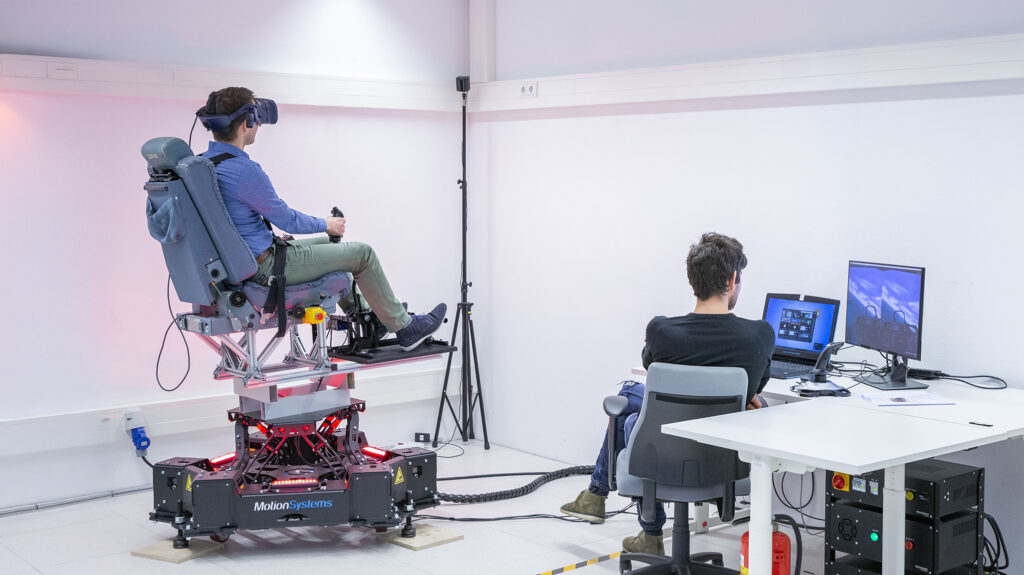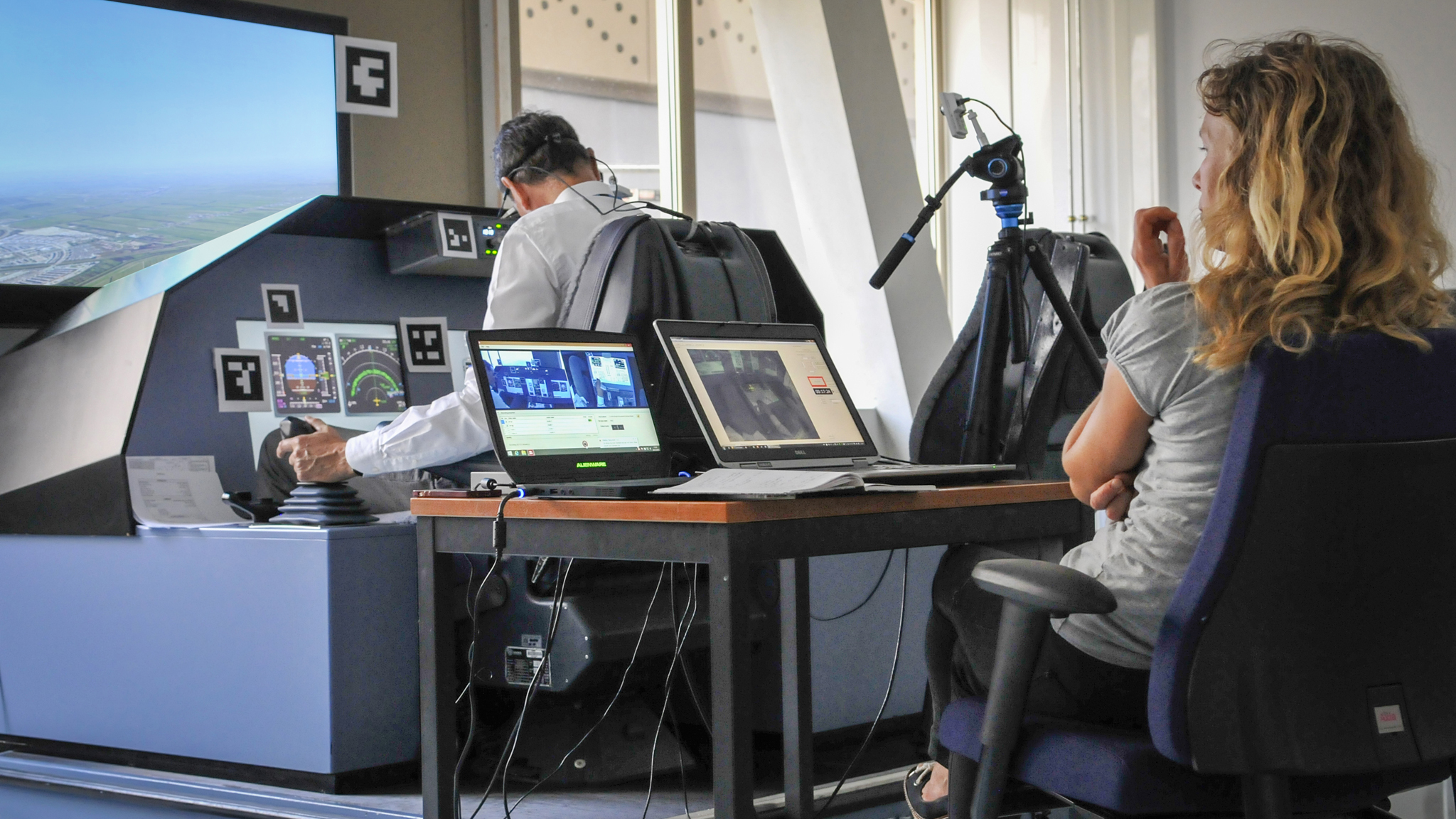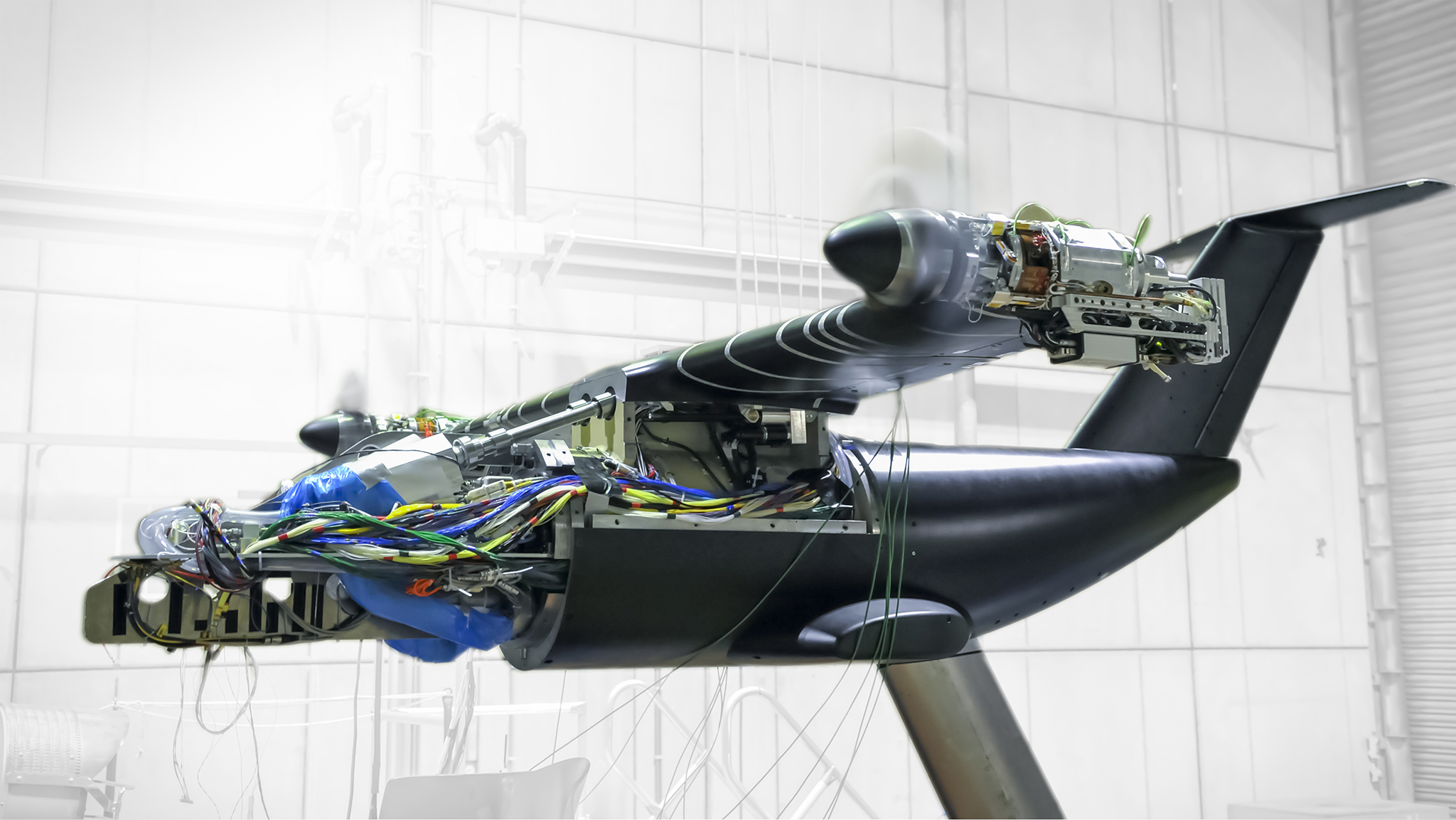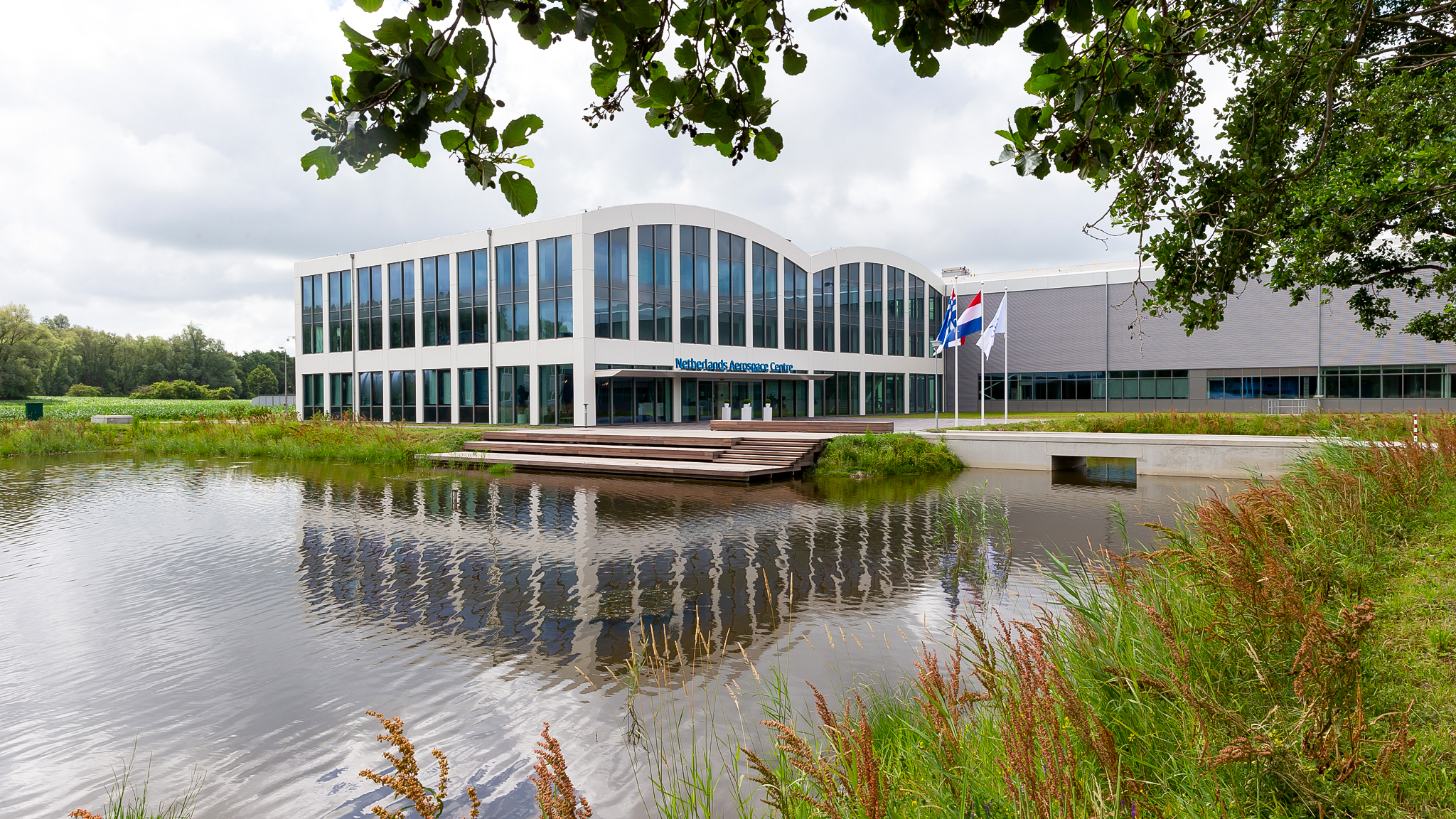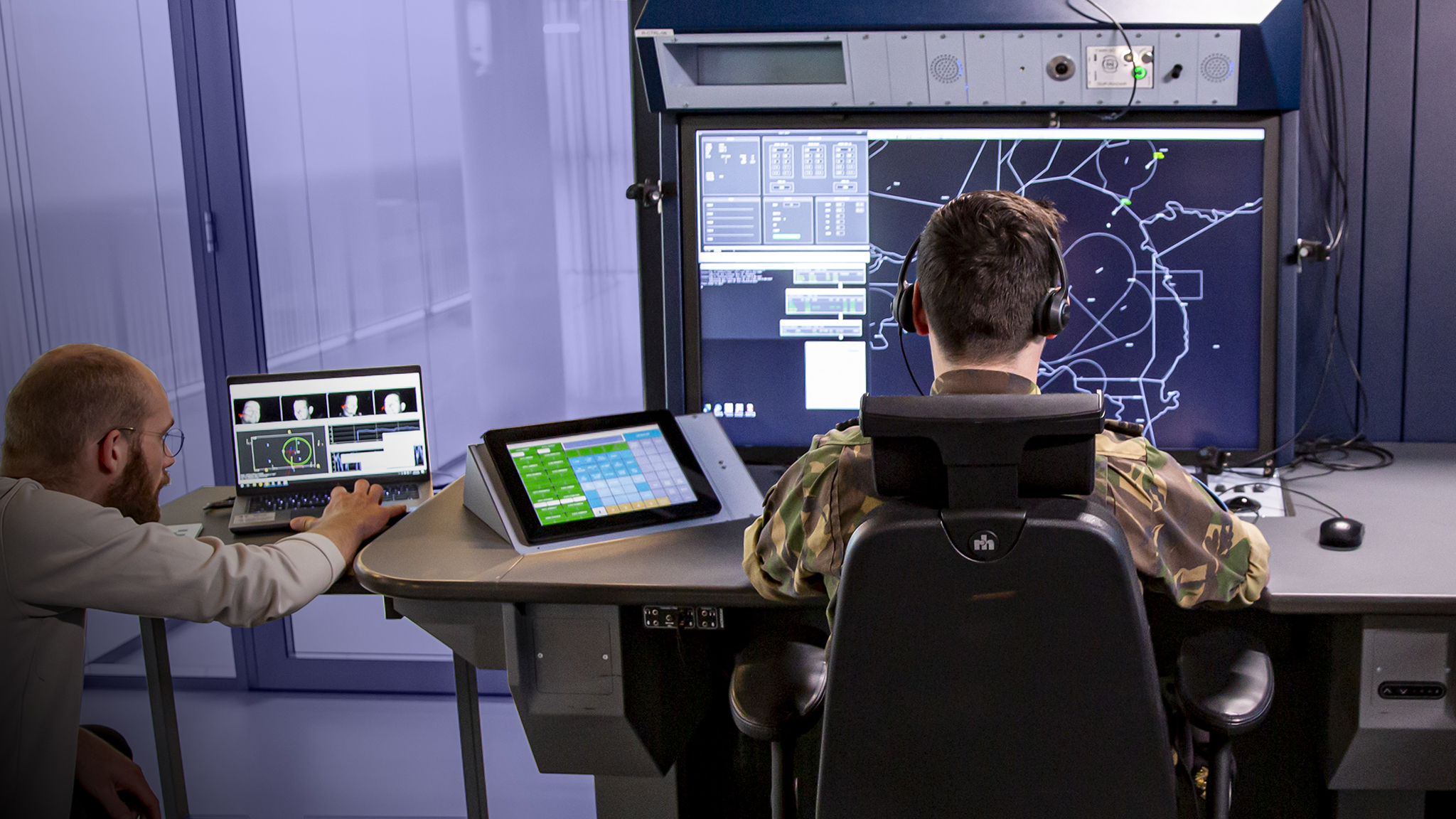
Area of expertise
Training and Simulation
NLR is the strategic knowledge partner of the Royal Netherlands Air Force in this research area and also works closely with other parts of Defence. We are working with the Air Force to modernise the education and training programme. There is a particular focus on learning ecosystems and data-driven training (Performance Based Training). With our facilities, knowledge and expertise, we support Defence in the field of Concept Development & Experimentation (CD&E). And we work with industry on innovative simulation applications for education and training.
Outline of the research
Immersive simulation
Education and training benefit from immersion in a simulated world. Simply put, a training environment is simulated that feels as immersive as possible. This includes flight simulators, which use spatial and sensory immersion – nowadays increasingly based on virtual reality. In our research, the cognitive dimension is also receiving increasing attention.
Future training
In the future, training will be data-driven and better tailored to the training needs of the individual. We are developing a vision, methods and techniques to enable this.
Smart operator support
Technologies such as AI, augmented reality and robotics can make the operator’s work more efficient and effective, for example by using AI to support decision-making – or even as a real team member.
Scientific collaboration
We work together with universities, knowledge institutes, companies and governments. This not only provides new technical-scientific insights, which in turn can yield new products and services, but also a better understanding of the needs with regard to training and simulation in practice.
Some projects
Operational simulation
This expertise focuses on developing concepts and methods for simulating operational aspects of future military air operations, with a particular emphasis on multi-domain operations and the wargaming paradigm. The goal is to support all steps in the operational process, including analysis, planning, execution, and feedback. Research has been conducted on concepts that can support operational aspects of future military air operations, such as serious games for multi-domain operations and support through tactical simulation. These simulations aim to enable military personnel to practice and analyse complex scenarios, thereby better preparing them for future operations.
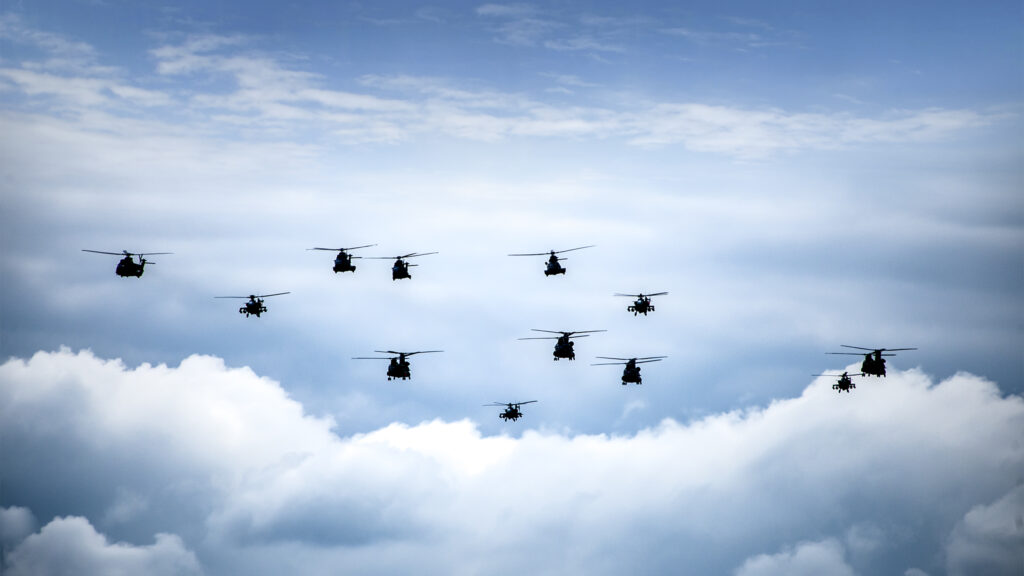
AI for instructor support
The goal is to develop concepts for the use of Artificial Intelligence (AI) for instructor support and automation within Learning Ecosystems. These concepts focus on functions such as performance assessment, scenario and content generation, and adaptive interventions. Additionally, a common framework is being developed for the application of machine learning-like methods to drive constructive entities for training and CD&E (Certification, Design, and Engineering). This involves aligning with concepts such as “constructives-as-a-service” and “composable human behavior modeling”, in order to create a flexible and adaptable approach to developing and training complex systems.
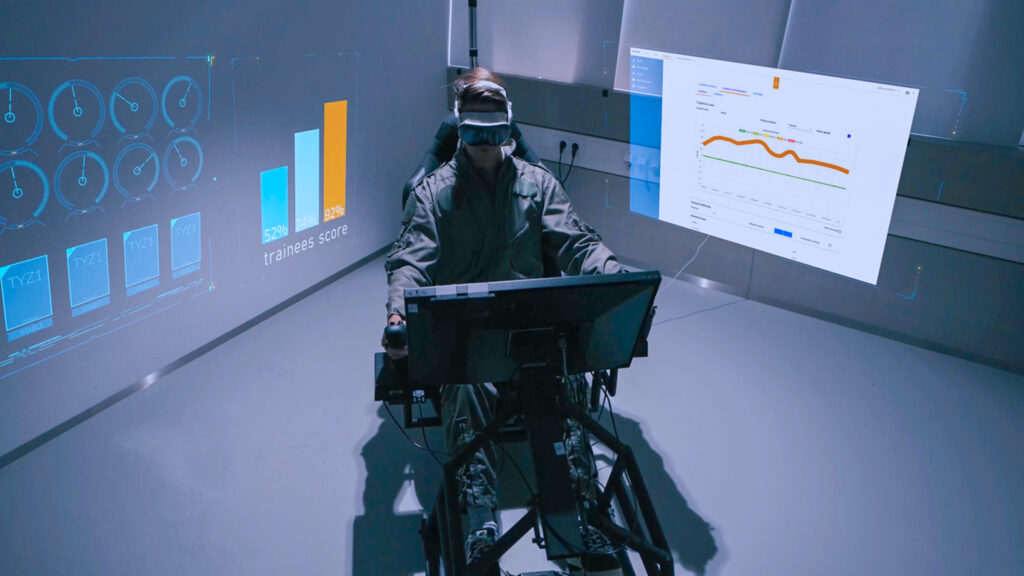
Immersive simulation X-Reality
In the coming years, X-Reality will be increasingly applied in simulations for operations and training, as well as for task support. To provide good advice on the professional use of this technology, it is essential to understand and investigate its Human Factors aspects, such as eye strain and virtual reality sickness. The goal is to identify mitigations that do not necessarily have to be technology-based. Research has been conducted on a new method to reduce cybersickness by combining live and virtual images. To evaluate the effectiveness of this method, human-in-the-loop experiments were conducted. The results of this research will help improve the effectiveness of X-Reality applications.
